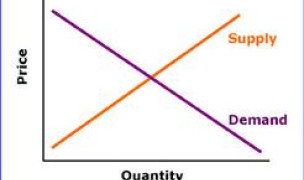 8 Terms
8 TermsHome > Terms > English (EN) > natural disasters/catastrophes
natural disasters/catastrophes
Two contradictory trends affected the impact of natural disasters on the United States in the second half of the twentieth century. On the one hand, thanks to advances in science and technology the ability to predict and prepare for natural disasters has greatly increased. On the other hand, more and more Americans have moved to areas that are prone to natural disaster and, largely for that reason, natural disasters cause more damage than ever.
Hurricanes illustrate both trends. Weather satellites, combined with new research insights, have greatly increased the ability to track hurricanes and determine their intensity although they may still take unpredictable paths. The National Hurricane Center, established by the federal government in 1974 to bring additional focus to its ongoing hurricane forecasting activities, constantly monitors the storms. In addition, advances in communication have made it far easier to alert people about approaching storms and to evacuate communities.
But more Americans than ever have moved to the portions of the Atlantic and Gulf coasts of the US where hurricanes are most likely to strike. Florida counties along the Atlantic Coast saw their populations double to 5.6 million between 1960 and 1980. That was one reason that Hurricane Andrew, which struck south Florida in 1992, was the most expensive storm on record, causing $26 billion in damage and twenty-six deaths.
Population density has exacerbated the ecological impact of storms as well. Scientists believe that developed barrier islands, for example, take longer to recover from storms than do pristine ones because human structures hinder the natural processes—such as the shifting of sands—that help the islands cope with the winds, waves and rains that accompany hurricanes. In addition, human activities can add pollution in the wake of hurricanes. The impact of Hurricane Floyd, which hit North Carolina in 1999, was increased because its rains caused holding tanks for pig manure from massive hog farming operations to overflow, dumping wastes into sensitive estuaries.
Many experts believe the federal government has unintentionally encouraged Americans to move to the most sensitive areas, particularly since 1968 when it began offering flood insurance. In addition, federal disaster aid often helps people rebuild homes and businesses in areas that are susceptible to future damage. “Acts of God” (as many insurance policies refer to natural disasters) seem to be followed inevitably by acts of Congress appropriating emergency funds in response. Since the 1974 passage of the Stafford Act, which set up a system of presidential emergency declarations, the federal government has spent between 1200,000 (1975) and $5 million (1994) on emergency appropriations to the Disaster Relief Fund for all types of natural disasters (tornadoes, floods, hurricanes, earthquakes, etc.).
Earthquakes, which are more likely to affect the West Coast of the US—although virtually every state contains some earthquake-prone region—are similar. While scientists have made little headway in predicting precisely when an earthquake may strike, they have made great strides in understanding where earthquakes are most likely, and engineers have become adept at designing structures that can withstand most temblors. Since 1977 the federal interagency National Earthquake Hazards Reduction Program has worked to improve earthquake science, engineering and preparedness.
Building codes, which are set by state and local governments, have become stricter since the 1960s to try to limit the damage from earthquakes. Yet little has been done to encourage owners of buildings that were constructed before the new codes were in place to “retrofit” their property. Privately sold earthquake insurance has contributed to the problem. On the West Coast, too, population trends have increased the risks. Los Angeles, CA, for example, grew by about 1 million people between 1960 and 1990, when its population reached 3.5 million.
The nation may face more weather-related catastrophes in coming years if, as many scientists believe, human activities, such as burning fossil fuels, are gradually changing the Earth’s climate. The warmer climate that is expected to result would also be more volatile with a greater occurrence of severe storms.
- Part of Speech: noun
- Synonym(s):
- Blossary:
- Industry/Domain: Culture
- Category: American culture
- Company: Routledge
- Product:
- Acronym-Abbreviation:
Other Languages:
Member comments
Terms in the News
Billy Morgan
Sports; Snowboarding
The British snowboarder Billy Morgan has landed the sport’s first ever 1800 quadruple cork. The rider, who represented Great Britain in the 2014 Winter Olympics in Sochi, was in Livigno, Italy, when he achieved the man-oeuvre. It involves flipping four times, while body also spins with five complete rotations on a sideways or downward-facing axis. The trick ...
Marzieh Afkham
Broadcasting & receiving; News
Marzieh Afkham, who is the country’s first foreign ministry spokeswoman, will head a mission in east Asia, the state news agency reported. It is not clear to which country she will be posted as her appointment has yet to be announced officially. Afkham will only be the second female ambassador Iran has had. Under the last shah’s rule, Mehrangiz Dolatshahi, a ...
Weekly Packet
Language; Online services; Slang; Internet
Weekly Packet or "Paquete Semanal" as it is known in Cuba is a term used by Cubans to describe the information that is gathered from the internet outside of Cuba and saved onto hard drives to be transported into Cuba itself. Weekly Packets are then sold to Cuban's without internet access, allowing them to obtain information just days - and sometimes hours - after it ...
Asian Infrastructure Investment Bank (AIIB)
Banking; Investment banking
The Asian Infrastructure Investment Bank (AIIB) is an international financial institution established to address the need in Asia for infrastructure development. According to the Asian Development Bank, Asia needs $800 billion each year for roads, ports, power plants or other infrastructure projects before 2020. Originally proposed by China in 2013, a signing ...
Spartan
Online services; Internet
Spartan is the codename given to the new Microsoft Windows 10 browser that will replace Microsoft Windows Internet Explorer. The new browser will be built from the ground up and disregard any code from the IE platform. It has a new rendering engine that is built to be compatible with how the web is written today. The name Spartan is named after the ...
Featured Terms
Networking social platform LinkedIn knows a thing or two about careers, so it makes perfect sense the company lands on this list. Besides the free ...
Contributor
Featured blossaries
Browers Terms By Category
- Satellites(455)
- Space flight(332)
- Control systems(178)
- Space shuttle(72)
Aerospace(1037) Terms
- Bread(293)
- Cookies(91)
- Pastries(81)
- Cakes(69)
Baked goods(534) Terms
- General Finance(7677)
- Funds(1299)
- Commodity exchange(874)
- Private equity(515)
- Accountancy(421)
- Real estate investment(192)
Financial services(11765) Terms
- Ceramics(605)
- Fine art(254)
- Sculpture(239)
- Modern art(176)
- Oil painting(114)
- Beadwork(40)




